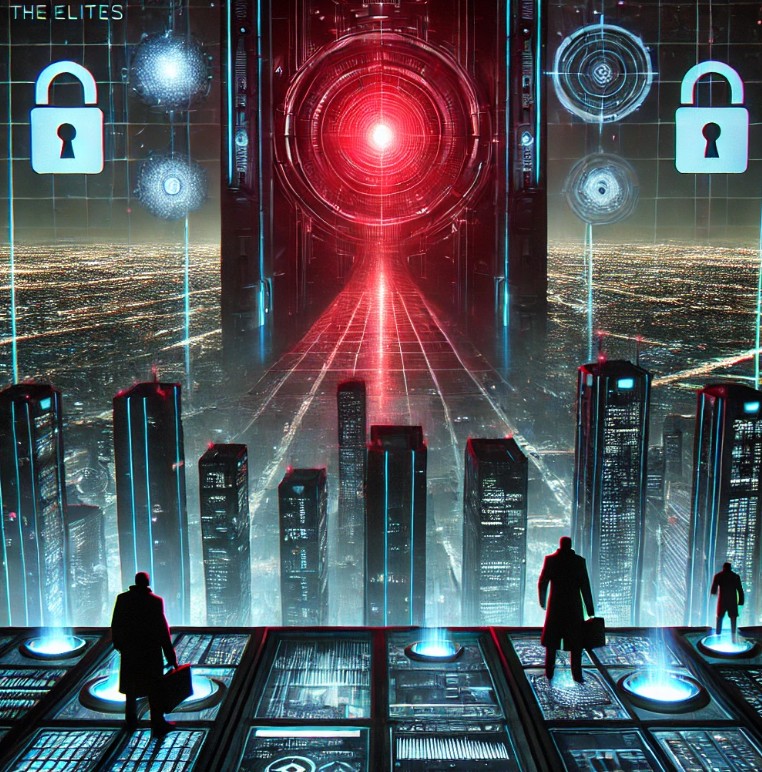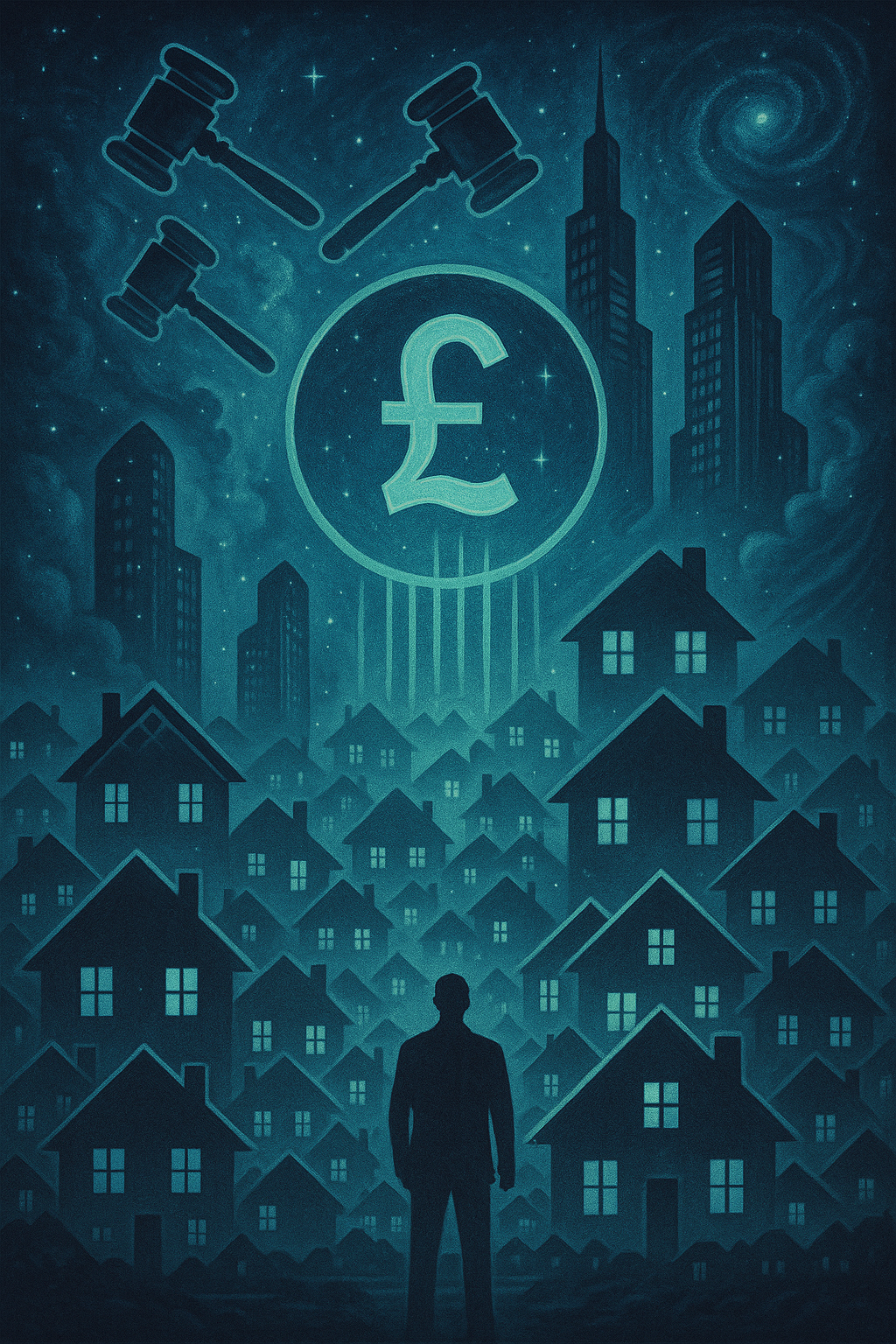A Manual for the Digital Age: Observing the Risks of Losing Access to One’s Lifeline
Popular articles
This guide observes a stark reality: bank accounts, personal data, and phones have become the lifeline of individuals in modern society. Without them, functioning as a human being becomes nearly impossible. Society operates on digital systems, and losing access to these essentials—whether through error, theft, or overreach—does not merely disrupt life; it threatens existence itself. Phones, in particular, hold sensitive data such as crypto keys, making them targets for abuse. The following outlines the problems and risks with clarity, reflecting on the implications for individual liberty.
The Problem: Society Binds Individuals to the Digital
The structure of modern life ties individuals to bank accounts, personal data, and phones. This dependency is not optional—it is the foundation of daily existence.
- Essentials cannot be purchased without access. Food, shelter, medicine—all require digital payments, linked to bank accounts.
- Movement is restricted without access. Travel—whether by bus, train, or car—demands digital tickets or payments, often through a phone.
- Connection is severed without access. Communication, from calls to messages, relies on phones and the data they hold.
- Identity cannot be proven without access. Personal data, often stored digitally, serves as proof of existence in a world that demands verification.
To be human in this era is to be digital. Without these systems, individuals are cut off—not just from convenience, but from survival and participation.
The Risk: Access Can Be Revoked
This lifeline is fragile. Access to bank accounts, data, and phones can be severed, often through no fault of the individual. When this occurs, life itself is endangered.
- An accusation of a crime may lead to frozen accounts. A false accusation results in bank accounts being shut off during an investigation. Food cannot be bought. Rent cannot be paid. Travel to defend oneself becomes impossible. Life is threatened—not by the accusation, but by the loss of access.
- A stolen phone puts data at risk. A thief takes a phone, severing access to accounts. Bills cannot be paid—electricity is cut. Medicine cannot be purchased—health suffers. Help cannot be sought—isolation deepens.
- A system failure locks individuals out. A bank error or a hacked account blocks access. Identity cannot be proven. Money cannot be accessed. Functioning in a society that demands both becomes impossible.
- Authority overreach curtails freedom. A government may block accounts for dissent or suspicion. Individuals are left without means to live, punished before any proof of guilt.
The Greater Risk: Phone Data in the Hands of Others
Phones hold more than contacts or apps—they contain sensitive data, such as crypto keys, account logins, and personal records. When this data falls into the wrong hands, particularly law enforcement, the consequences can be catastrophic.
- Police seizure of a phone exposes vulnerabilities. During a routine stop, police take a phone, claiming it’s for “evidence.” They plug it into their systems. An officer with access might copy crypto keys, logins, or account details. Months later, a crypto wallet is emptied—life savings vanish. The theft may not even be noticed until it’s too late.
- Transparency in law enforcement is often absent. Police systems frequently lack accountability. Evidence disappears, tapes go missing, and tracking which officer accessed the data becomes impossible. The individual is left with nothing—no recourse, no justice, just an empty wallet and a broken life.
- Promises of recordings cannot be trusted. When police claim, “The interaction will be recorded, and access will be granted later,” such promises often fail. Tapes are “lost,” access is delayed, and no proof of what happened remains. The system protects itself, not the individual.
This is not merely a risk—it is a reality. A phone is a vault, and surrendering it is akin to handing over the key to one’s life. Relying on others to safeguard such data is a gamble with dire odds.
The Philosophical Stake: Dependency as a Threat to Liberty
A deeper truth emerges: when humanity depends on systems beyond individual control, liberty is at risk. Philosophers define liberty as the power to act according to one’s will. Yet if that will is tied to a phone, a bank account, a dataset—and these can be taken or abused—liberty becomes an illusion.
- Freedom is undermined when access can be revoked. A system that can cut off or steal from individuals holds power over their lives.
- Sovereignty is hollow without the ability to act. Without the means to buy, move, or connect, choices lose meaning.
- Security is absent when systems fail. Errors, theft, or abuse by authorities can strip individuals of their humanity, leaving them vulnerable.
- Protection is lost when control is surrendered. Handing over a phone to police—or anyone—means relinquishing one’s life, with no guarantee of safety.
This dependency is a chain. It binds individuals to a world that can exclude or exploit them. True liberty requires holding the key to one’s own existence—not entrusting it to a bank, a government, or a rogue officer.
The Observation: Individual Security as a Necessity
The universe and reality impose a harsh truth: individuals must protect themselves. Phones, data, and accounts are lifelines, and their security cannot be left to others. The following observations highlight this necessity.
- Risks are ever-present. Access can be lost or abused—through error, theft, or overreach by authorities.
- Surrendering a phone is a grave decision. When police demand a phone, the data within—crypto keys, accounts, personal records—becomes vulnerable to exploitation.
- Recordings must be independently secured. Relying on police to provide recordings of interactions is unreliable. Evidence of what occurred must be captured and retained by the individual, instantly, through their own means—saved to a cloud or a trusted location, not left to promises of future access.
- Systems lack accountability. Banks, governments, and law enforcement often fail to treat access as a right, and transparency in how data is handled is rare.
- Preparation is essential. Without backups or alternatives, individuals are at the mercy of systems that may fail or betray them.
Bank accounts, data, and phones are the lifeline of individuals. Losing them means losing a place in the world. Worse, allowing them to be taken risks exploitation by those who would misuse them. The duty to protect this lifeline falls to the individual—because reality offers no other choice.
Subscribe to unlock premium content
Sed at tellus, pharetra lacus, aenean risus non nisl ultricies commodo diam aliquet arcu enim eu leo porttitor habitasse adipiscing porttitor varius ultricies facilisis viverra lacus neque.
The Great Wealth Generation Act 1.0

The Great Democracy Restoration Act

UK Nutrition Act 1.0

The Great Wealth Generation Act 1.0

The Great Democracy Restoration Act

The Great Wealth Generation Act 1.0







